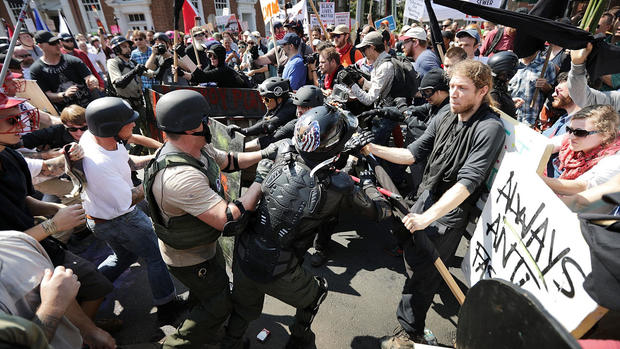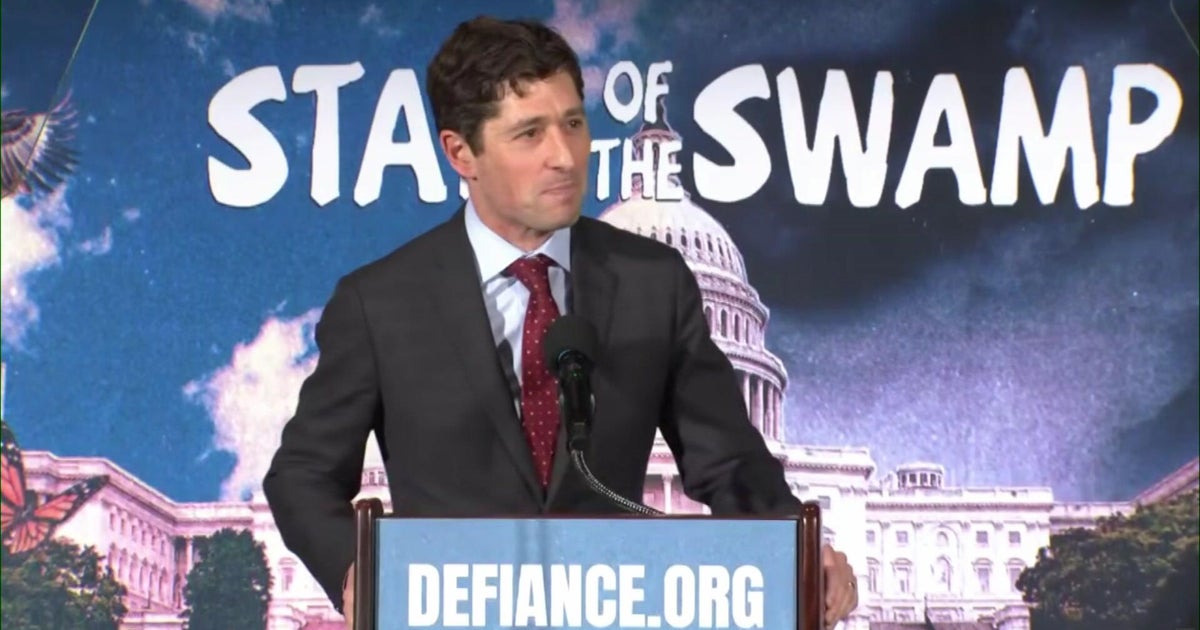Sunday: Race in America, one year after Charlottesville
Charlottesville, Virginia was already in a state of tension when dawn broke on the college town on August 12, 2017. Hundreds of white supremacists, in town to protest the planned removal of a statue of confederate leader Robert E. Lee, had spent the previous Friday night marching through the University of Virginia, carrying tiki torches and shouting racist slogans like "blood and soil" and "Jews will not replace us."
The ugly spectacle and the attention that resulted drew a sizable counter-protest the next day. Before Saturday was over, the tension in the city would explode, as violent clashes between white supremacists and counter-protesters resulted in the loss of three lives. One anti-racist demonstrator, 32-year-old Heather Heyer, was killed when a white supremacist drove his car into a crowd of people, and two Virginia state police troopers died when their helicopter crashed as they were monitoring the violence.
The tragedy touched off a furious debate about hate groups and race in America, and that debate escalated dramatically when President Trump weighed in on the situation a few days later. In a defiant news conference in the lobby of Trump Tower on August 16, the president laid blame for the violence in Charlottesville on "both sides" of the situation.
"You had a group on one side that was bad and you had a group on the other side that was also very violent," the president declared. "Nobody wants to say it, but I will say it right now."
--
This Sunday will mark exactly one year since last summer's deadly violence in Charlottesville. What did the episode teach us about our country, about our politics, and about our history? Have we made any progress in healing the divisions exposed by the incident? What is the current state of race relations in America? Are our political leaders playing a constructive role in healing division – and should we expect them to? We'll unpack all of that and more this Sunday on a special Face the Nation (@FaceTheNation) broadcast with moderator Margaret Brennan (@margbrennan).
We'll talk with South Carolina Sen. Tim Scott (@SenatorTimScott), the only African-American Republican in the Senate, to get his perspective on race in America, a year after Charlottesville.
We'll also hear from Virginia Democratic Sen. Tim Kaine (@timkaine) about how his state is faring – and how the country is faring – on the first anniversary of the deadly violence.
We'll sit down with Charlottesville Mayor Nikuyah Walker (@NikuyahWalkerCC), the city's first African-American mayor who took office at the beginning of this year, about how her city is moving on.
Finally, we'll get a range of perspectives on race in America from a special panel, including:
- Jon Meacham (@jmeacham), historian and author of "The Soul of America."
- DeRay Mckesson (@deray), Black Lives Matter activist, community organizer, and author of "On the Other Side of Freedom."
- Christian Picciolini (@cpicciolini), former extremist, founder of "Life After Hate," and author of "White American Youth."
- Jamelle Bouie (@jbouie), Chief Political Correspondent at Slate Magazine, and a CBS News Political Analyst.
Don't miss "Face the Nation" this Sunday! Click here to check your local listings, or stream a rebroadcast on CBSN at 11 a.m. or 3 p.m. Eastern Time.
And for the latest from America's premier public affairs program, follow us on Facebook, Twitter and Instagram.




